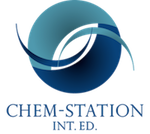- Generality
- Reagent Availability
- Experimental User Friendliness
- Criteria #4
- Criteria #5
-
General Characteristics
The advantages of liquid-phase peptide synthesis (LPPS) over solid-phase synthesis (SPPS) include the use of reduced reagents and solvents and the ease of scaling up. The main disadvantage of LPPS is, of course, the difficulty of purification.
The AjiPhase is the LPPS technology developed by Ajinomoto Co. that combines the benefits of LPPS and SPPS.
By using fluorenyl- and diphenylmethyl-type C-terminus anchors containing long alkyl chain(s), post-reaction purification can be done by precipitation (by adding polar solvents).
 Synthetically challenging peptides (such as hydrophobic peptides) can be accessed more easily with this technology.
Synthetically challenging peptides (such as hydrophobic peptides) can be accessed more easily with this technology.
-
General References
- Takahashi, D.; Yamamoto, T. Tetrahedron Lett. 2012, 53, 1936. doi:10.1016/j.tetlet.2012.02.006
- Takahashi, D.; Inomata, T. J. Pept. Sci. 2012, 18, S35.
- Takahashi, D.; Yano, T.; Fukui, T. Org. Lett. 2012, 14, 4515. DOI: 10.1021/ol302002g
<Other scalable LPPS>
- Carpino, L. A. et al. Org. Proc. Res. Dev. 2003, 7, 28. DOI: 10.1021/op0202179
- Eggen, I. F. et al. Org. Proc. Res. Dev. 2005, 9, 98. DOI: 10.1021/op049864l
<General reviews of chemical synthesis of peptides/proteins>
- Humphrey, J. M.; Chamberlin, A. R. Chem. Rev. 1997, 97, 2243. DOI: 10.1021/cr950005s
- Bray, B. L. Nat. Rev. Drug Discov. 2003, 2, 587. doi:10.1038/nrd1133
- Nilsson, B. L.; Soellner, M. B.; Raines, R. T. Annu. Rev. Biophys. Biomol. Struct. 2005, 34, 91. DOI: 10.1146/annurev.biophys.34.040204.144700
- Kent, S. B. H. Chem. Soc. Rev. 2009, 38, 338. DOI: 10.1039/b700141j
- Pattabiraman, V. R.; Bode, J. W. Nature 2011, 480, 471. doi:10.1038/nature10702
- White, C. J.; Yudin, A. K. Nat. Chem. 2011, 3, 509. doi:10.1038/nchem.1062
- Stolzew, S. C.; Kaiser, M. Synthesis 2012, 44, 1755. DOI: 10.1055/s-0031-1289765
-
Design Principle
The bulky anchor is designed to prevent the peptide from decomposition via diketopiperazine formation (which is the same concept as chlorotrityl solid support). Fluorenyl group has a higher stability in solution than trityl group.
-
External Links
- Peptide (Wikipedia)
- Peptide Synthesis (Wikipedia)
- Ajiphase Peptide Synthesis
- AJIPHASE
- 味の素 (Ajinomoto Co.)

